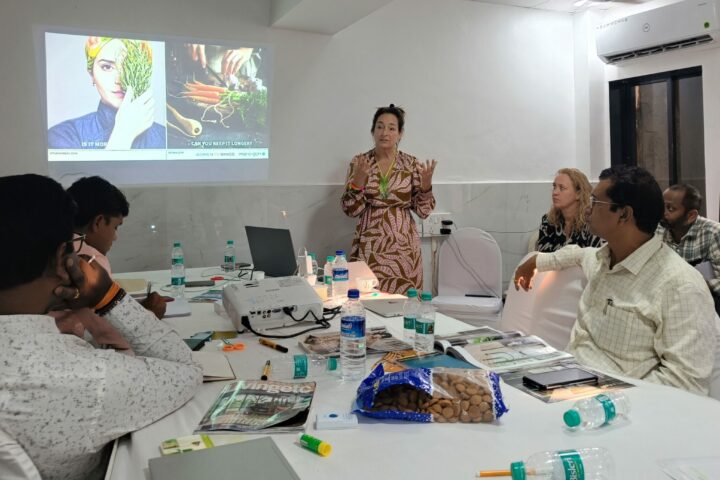An emphasis on cultivating an entrepreneurial spirit particularly among women to keep rural communities intact
The Indian state of Uttarakhand has long struggled with large-scale out-migration from its hilly regions. This is due to limited livelihood opportunities and an economy heavily reliant on agriculture and tourism, with minimal industrial diversification. Agricultural production in the hills is hampered by fragmented land which leads to transport costs, difficult terrain, harsh weather, and a lack of product differentiation. The burden of this migration has fallen disproportionately on women, who are left to manage households, farms and small enterprises with little support.
To address this, the Government of Uttarakhand launched House of Himalayas in 2023 as a Public Sector Undertaking (PSU), inaugurated by Prime Minister Narendra Modi, to strengthen market access for Himalayan women farmers and rural entrepreneurs. It builds on a solid foundation, framework and existing synergies established by Uttarakhand’s Department of Rural Development.
The House of Himalayas initiative serves as a unified brand showcasing the state’s high-quality produce and handcrafted products on a global platform. Rooted in the vision of Vocal for Local, Local for Global, the initiative enhances branding, marketing and sales, ensuring sustainable economic opportunities for local communities. By 2030, it aims to strengthen Self Help Groups (SHGs) and Cluster Level Federations (CLFs)* covering 500,000 households.
Women on Wings, with Gates Foundation funding, is carrying out a range of business activities to develop House of Himalayas into a sustainable and exportable brand.
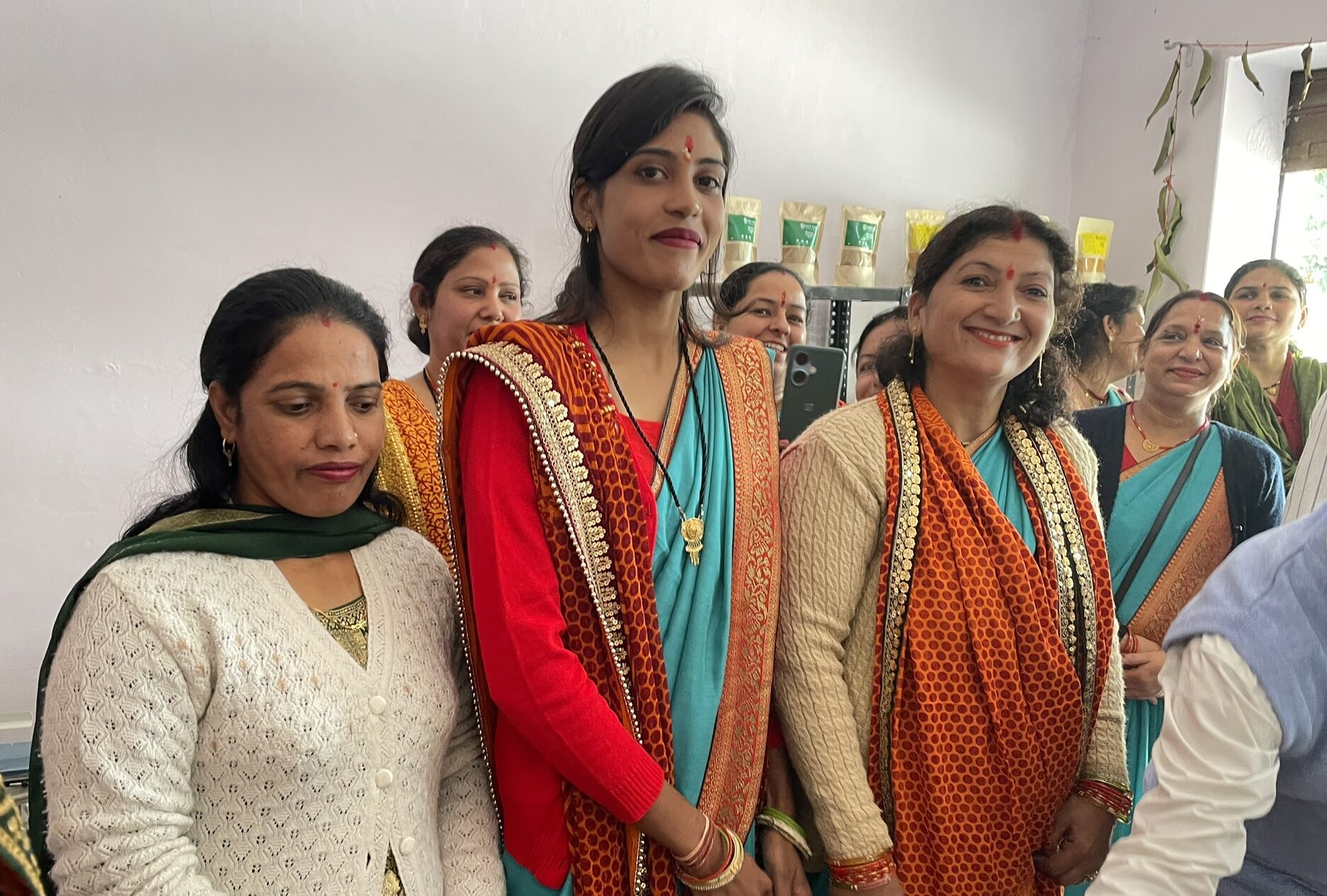
Members of the Safalata CLF who are part of a new spice processing unit creating fine coriander and turmeric powders.
Growth to keep rural communities intact
Because of the scarcity of livelihood opportunities, Uttarakhand, established as a state in 2000, has invested significantly in its rural Himalayan areas. These investments include infrastructure development (roads, water, and food supply), livelihood development programs, training on climate adaptive farming processes and organic biogas manure programs, all aimed at creating sustainable income opportunities and ultimately preventing large-scale out-migration.
Uttarakhand has also targeted the creation of a support system for women farmers, processors and artisans in 495 CLFs across 13 districts. Its Department of Rural Development launched House of Himalayas so these women, under one platform, can access markets nationally and globally for their high-quality grown, produced and crafted products.

Shilpa Mittal Singh
Joint Managing Director
Women on Wings
“As House of Himalayas expands its reach, it has potential to become a replicable model to create access to market.”
Bringing a vision to a global market
To make this game-changing vision a reality, Women on Wings with the Gates Foundation’s partnership, is working to scale the operations and sales of House of Himalayas. Women on Wings has developed a comprehensive business roadmap along with three-year financial projections and is providing hands-on implementation services.
Some of these services include tailored market research, marketing strategies, cost analysis, and communications plans. Additionally, Women on Wings has been involved in setting up a team for House of Himalayas by creating the organizational structure, job roles and setting up hiring processes.
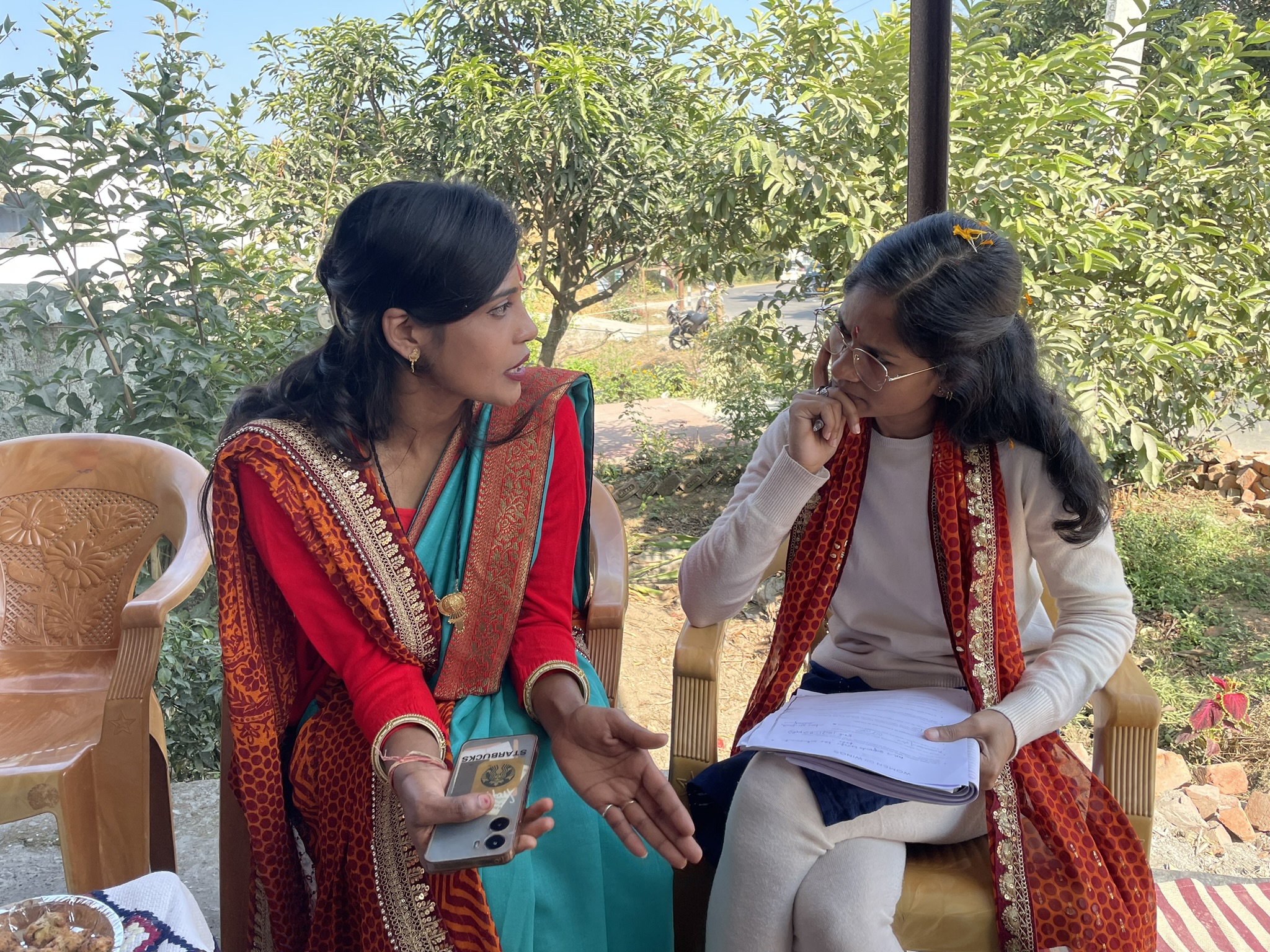
Pooja shares about her journey and plans and details for the spice processing unit with Women on Wings Project Manager Zeenita Patra to help illustrate the numbers and women involved in the value chain.
Pooja’s journey from finance to community leadership
These efforts by Uttarakhand’s Department of Rural Development will uplift countless women. Take Pooja, for example. With her bachelor’s degree in Mathematics, Pooja had embarked on a promising career in finance. However, she made the courageous decision to leave her job and hometown behind, relocating to a rural village of 1,220 residents, south of Dehradun, to focus on her new family.
Initially a stranger to rural life, Pooja saw needs in her new community and began to address them by sharing her financial knowledge with a local women’s Self-Help Group (SHG). She also supported local women farmers to improve their yields by sourcing high-quality wheat seeds through the nearby Safalata CLF.
Soon after Pooja joined the 750 women-led Safalata CLF, strengthening her community connections while empowering local women. Which, she says, has brought her fulfillment. Recognizing her potential, the CLF hired 26-year-old Pooja in preparation to supply products such as processed spices to House of Himalayas. Her CLF plans to hire additional employees.
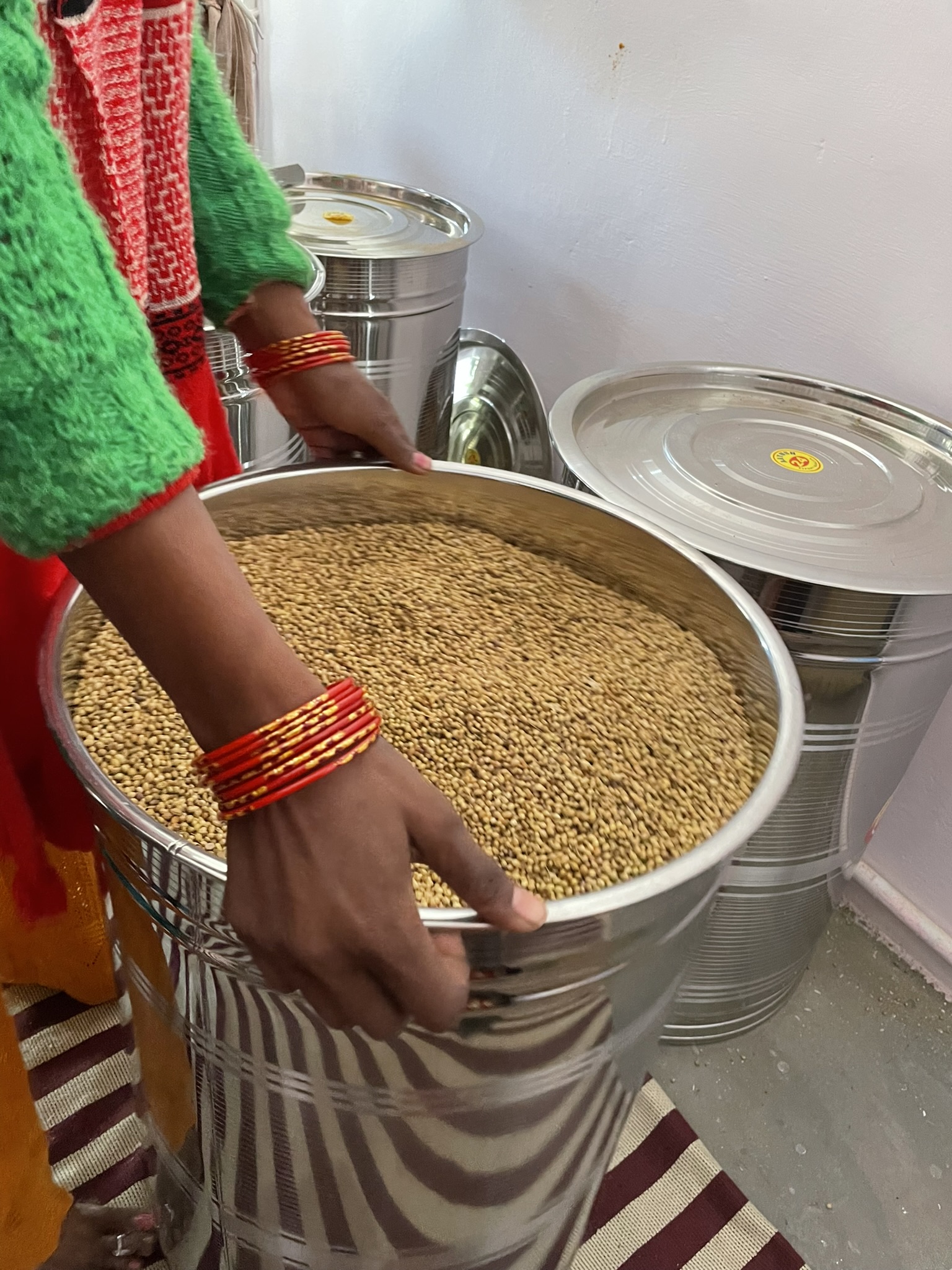
Raw coriander seed sourced from nearby farms ready to be pulverized into a fine powder.
How a community enterprise is born
The next time you find yourself adding a dash of coriander to your dish, pause and consider this: that fragrant spice might have come from farmers in the heart of the Himalayas, its journey overseen by the spice processing enterprise that Pooja and the women of her CLF started in October 2024.
Their enterprise is one in a constellation of many getting primed to supply House of Himalayas. Let’s see how one enterprise started up using Safalata’s CLF as an example:
Step 1 Support and transformation: Pooja’s CLF launches a spice processing unit with assistance from various Uttarakhand Department of Rural Development initiatives, including USRLM (Uttarakhand State Rural Livelihood Mission), the RBI (Rural Business Incubator), UGVS (Uttarakhand Gramya Vikas Samiti) and REAP (Rural Enterprise Acceleration Program). They receive support with formalizing their businesses, tax registration, packaging, online listings, and branding, as well as office space and a processing center.
Step 2 Equipment acquisition: With this infusion of support, her CLF collectively buys a pulverizer and cleaning / grading equipment.
Step 3 Establishment of storefront: They set up an integrated processing, packaging and retail storefront in an accessible village location that the women can get to easily.
Step 4 Spice processing: On their new machinery, the CLF now grinds naturally farmed spices like chilies, coriander seeds and turmeric into high-quality colorful powders that they package in-house.
Step 5 House of Himalayas access: The collective’s processed spices might not only be sold on-site. With a little more experience, they may join the pipeline of selling through House of Himalayas, gaining support for global market entry.
Step 6 Impact on women farmers: There is more impact awaiting in this value chain as the spices are tied to 150 local women engaged in natural farming they source spices from, who also benefit from fair prices and increased income.
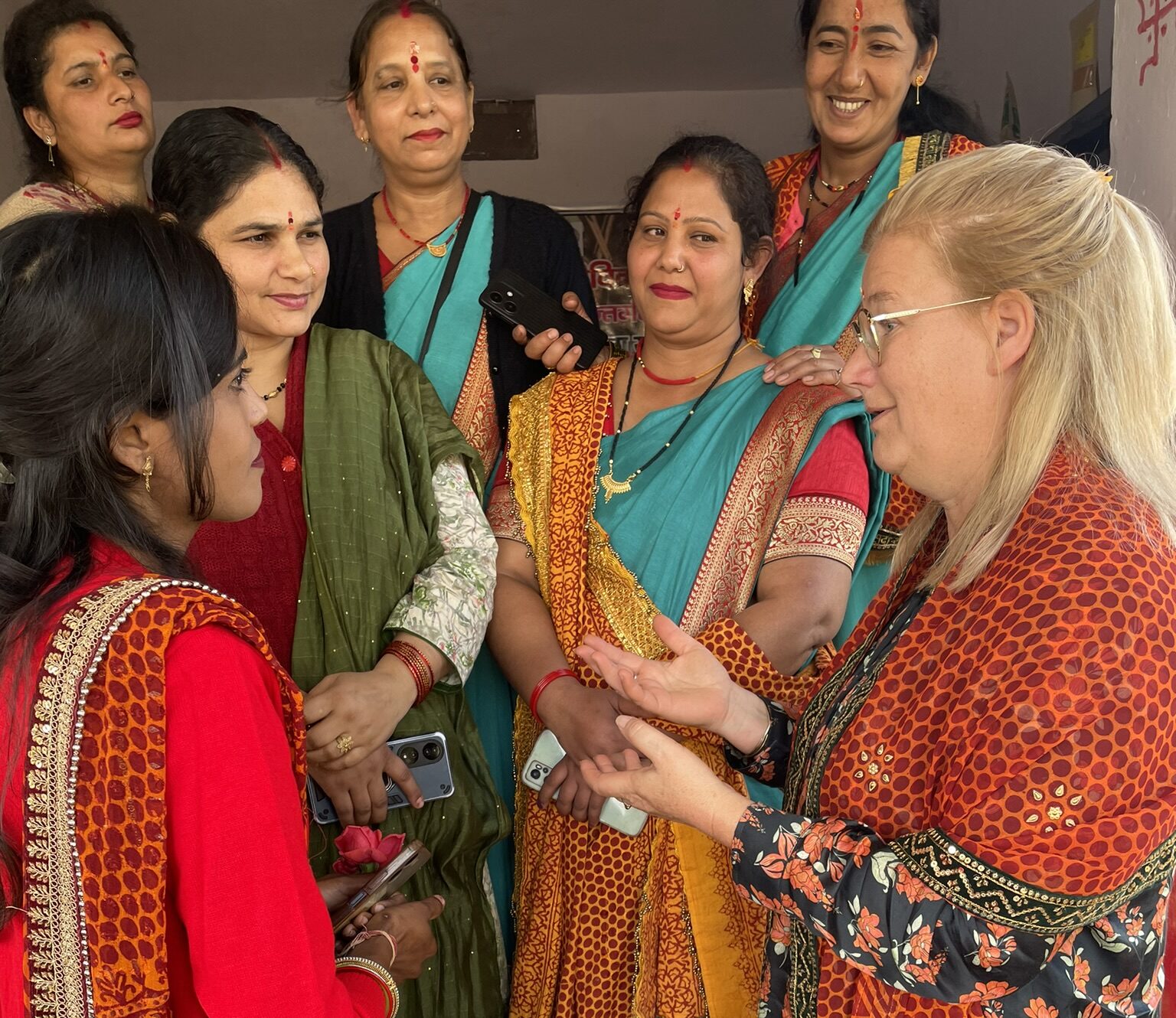
Members of the spice processing unit share about themselves and their cost pricing plans with Women on Wings Financial Manager Jose Vergeer.
Higher pay for Himalayan farmers
Pooja’s unit sources raw spices from women farmers who previously sold their products individually to local traders. They were unable to maintain quality, packaging or fair prices. With government seed money and forward-market linkages, Pooja’s unit pays farmers a higher market rate for their raw materials, increasing incomes and potentially reducing migration.
The growth of the House of Himalayas brand will be directly related to increased procurement from women farmers leading to their enhanced incomes. As sales increase, Pooja’s unit plans to include 150 more women farmers in its supply chain and to involve them in sales and marketing.
And this is just the beginning.
Many more CLF-created enterprises plan to procure raw materials from farmers and create market linkages for processed goods sales.

House of Himalayas honey, tea and Himalayan finger millet biscuits gift box
A replicable impact on women and communities
“As House of Himalayas expands its reach, it has potential to become a replicable model to create access to market,” states Women on Wings Joint Managing Director Shilpa Mittal Singh. “This leads to economic empowerment of women and demonstrates the transformative power of investing in women, sustainable livelihoods and local economies.”
By facilitating market access, providing guidance and promoting entrepreneurship, the initiative goes beyond economic growth and preserving the fabric of Uttarakhand’s rural communities. Through boosted income opportunities, women entrepreneurs can supplement household income and save for their children’s education and healthcare. And House of Himalayas creates a replicable pathway for women to become self-reliant leaders, drive positive change and inspire future generations in their communities.
*CLF’s are a standard form of self-organization in India that achieve economies of scale and promote livelihood and social development.
Learn about Women on Wings partnerships with Indian government institutions.


